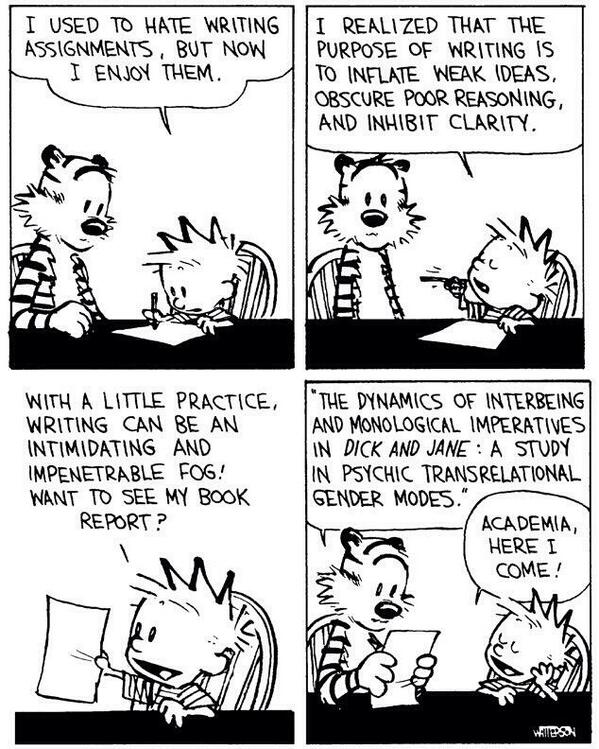It's an issue I deal with a lot because so much of the teaching I've done focuses on writing in the disciplines.
I have a lecture I do on hedging in academic writing, and it goes into some of the important reasons some sentences get cluttered. My students and I talk a lot about disciplinary jargon. The way we incorporate citations into sentences is a major concern as students advance in their studies. And the list goes on and on.
From a distance, academic writing often does look too complex. And sometimes it is. But I do worry about this debate. The debate suggests that there is one form of "Academic Writing," and that simply is not the case.
To a person who has examined writing across the disciplines, that suggestion is as silly as suggesting that there is one form of "writing for the public." Imagine if The Atlantic used the same style and tone as The Huffington Post or TMZ.
This article deftly deals with the complexities behind the styles of writing that emerge from academia.
A disconnect between researchers and their audiences fuels the problem, according to Deborah S. Bosley, a clear-writing consultant and former University of North Carolina English professor. “Academics, in general, don’t think about the public; they don't think about the average person, and they don't even think about their students when they write,” she says. “Their intended audience is always their peers. That’s who they have to impress to get tenure.” But Bosley, who has a doctorate in rhetoric and writing, says that academic prose is often so riddled with professional jargon and needlessly complex syntax that even someone with a Ph.D. can’t understand a fellow Ph.D.’s work unless he or she comes from the very same discipline.It is well worth the read, especially for students and scholars of writing.

1 comment:
This book is used as the teaching materials in my English class. It is pretty good for international students as well as graduate students.Book Report Writing Services in UK
Post a Comment